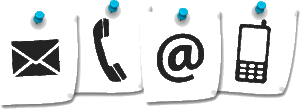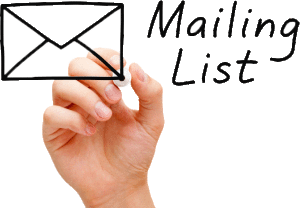 If you work as a writer, you need a website.
You need a website even if you are affiliated with a college or university.
If you work as a writer, you need a website.
You need a website even if you are affiliated with a college or university.
Your website serves as the keystone of your writer platform: your personal ability to sell books, magazines, and newspapers through who you are, who you know, and your personal media outlets.
In this post, you will discover 3 reasons why you need a website & what information you should include in it.
3 Reasons Why You Need A Website
 1. Google Search. We live in a search-engine filled world. Whenever we want to find information about a person, place, news, event, or task, we use a search engine to find it.
1. Google Search. We live in a search-engine filled world. Whenever we want to find information about a person, place, news, event, or task, we use a search engine to find it.
2. Your Online Hub. Your website serves as the keystone of your writer platform because it allows you to control your narrative and provides Google Search with a natural place to send people.
A website will allow you to share your full narrative with anyone who visits your site. You can broadcast only snippets of your story with social media.
Academic writers should develop an online hub that is separate from their department website.
 Your page on the department website contributes to the narrative of the department, more than it showcases information about you and your work. Most importantly, most department websites make their faculty members look like institutional dullards.
Your page on the department website contributes to the narrative of the department, more than it showcases information about you and your work. Most importantly, most department websites make their faculty members look like institutional dullards.
Why not give your readers something more exciting to look at and read?
Create a website that expresses your expertise, publications, and personality. If you need inspiration see MarcusRediker.com and MeganMarshallAuthor.com.
3. A Place that Points to You. A website gives readers and fans a way to link to you whenever they write about you or cite your work.
Website Must Haves
1. Bio or About Me Page. This page should contain a picture of you and a couple of paragraphs that describe you and your work in a way that will resonate with your readers. Your photo should be professional looking, but it doesn’t have to be too formal.
 2. Contact Information. Many writers opt to put this information on their about page, some include it on as many pages as possible.
2. Contact Information. Many writers opt to put this information on their about page, some include it on as many pages as possible.
Your contact information should include your e-mail address and social media handles. You can add your phone number and mailing address if you want to.
3. Writer Resume/CV. An easy way to keep this information up to date is to create a resume or CV through Google Drive and embed the link of your document in the appropriate page on your website. This trick will allow you to automagically update your web copy when you edit your electronic copy. For an example, see my CV page.
4. Writing Samples. If you are a freelance writer, you should include scanned examples of your printed work and links to your online publications.
5. Press Page/Media Kit. This page should list all of your upcoming and several of your past speaking engagements. You should also include information about your book, a brief bio, a professional-looking photo, testimonials, and the press release for your book. You might also bundle all of this information into a PDF file that people can download.
 6. E-mail List Sign-Up. An e-mail list is one of the most important resources you can build.
6. E-mail List Sign-Up. An e-mail list is one of the most important resources you can build.
Having 5,000 Twitter followers or Facebook fans is great, but Twitter and Facebook own your followers and fans, not you. Facebook has begun to charge fan-page owners to broadcast their message to their fans. Twitter may not be far behind.
If you build an e-mail list on your website, you will own the contact information for your subscribers. Ownership will allow you to interact with your fans and followers via e-mail any time you have important, helpful, or interesting news to convey to them.
7. Bonus Information. Bonus information should draw fans and readers to your website. It might include additional research or stories you couldn’t include in your book, cut scenes, illustrations of your characters, sneak peeks of your forthcoming book(s), videos about you, contests or giveaways that promote your work, or a blog that provides valuable content.
 Bonus Tips: URLs
Bonus Tips: URLs
Ideally, your URL should be the name you (will) publish under.
If you have a common name like Robert Smith, add "writer," "author," or a middle initial to your name. You might also try an obvious nickname with "writer," "author," or a middle initial, i.e. www.bobsmithwriter.com.
Some authors buy URLs for their book titles.
You can use different URLs to point to different pages on your website. For example: elizabethcovart.com or lizcovart.com will take you to my "About" page, uncommonplacebook.com will take you to my blog.
You can search for and buy URLs from sites like NameCheap or GoDaddy. After you find, but before you purchase, your URL be sure to use Google Search to locate a coupon. Both sites regularly offer coupons that will save you money.
Concluding Remarks
I hope I have convinced you to create a website. If I haven’t, send me an e-mail, leave a comment, or tweet me and tell me why you are reluctant.
If I have convinced you, send me an e-mail, tweet, or leave a comment if you need help with content or ideas for how to build your website.
Good Luck!
 Share Your Site
Share Your Site
Do you have a writer website?
Share your link in the comments section so we can build a database of examples for our fellow writers and historians.
